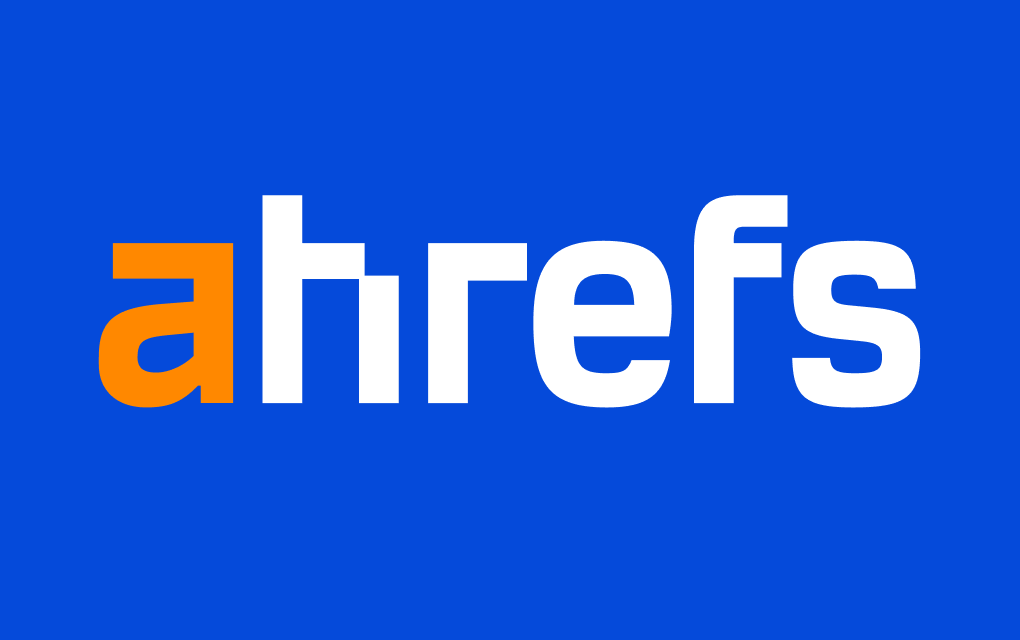This Article has been revised, edited and added to, by Poulomi Chakraborty.
- Understanding Local SEO and Its Importance
- Keyword Research for Local Educational SEO
- Implementing Local Keywords in Your Content
- Local Keyword Challenges for Educational Websites
- Harnessing Local Keywords for Backlink Building
- Optimizing Metadata with Local Keywords
- Tracking and Measuring the Impact of Local Keywords
- Local Keyword Strategies for Different Educational Levels
- Embracing the Evolving Landscape of Local SEO
- Building Localized Content Around Keywords
- Leveraging User-Generated Content for Local SEO
- Establishing Local Backlinks
- Understanding Local Search Algorithms and Their Impact on Education
- Mobile Optimization for Local Searches
- Ongoing Local SEO Strategies for Schools
- Reviews and Testimonials: Their Power in Local SEO
- Harnessing Local Backlinks for Schools
- The Role of Social Signals in Local SEO
- Future Predictions: The Next Phase of Local SEO for Educational Institutions
- Final Takeaways and Best Practices Recap
- Building Local SEO Strategies Around School Events
- The Role of Local Media in Boosting Educational SEO
- Continuous Learning and Staying Updated
- Conclusion
In today’s digitally-driven era, educational institutions, just like businesses, need to mark their presence online. While a solid online presence is crucial for global recognition, the importance of local visibility cannot be overlooked, especially for schools, colleges, and other educational entities that primarily serve local communities. Local Search Engine Optimization (SEO) forms the bedrock of such a strategy. Central to this is the effective use of local keywords.
The quest for a school or a course, more often than not, begins with a local search. Parents may type in “best schools near me” or “top math tutoring in [City Name]”. These search queries, rich with local keywords, underscore the importance of tailoring educational SEO efforts to cater to local audiences. This guide aims to illuminate the nuances of integrating local keywords seamlessly into your SEO strategy, ensuring that your educational institution stands out in local search results.
Understanding Local SEO and Its Importance

Local SEO: An Overview
SEO, in its essence, revolves around optimizing your website so it ranks higher on search engine results. When you bring the ‘local’ element into this equation, it narrows down the focus to optimizing the online presence for a local audience. For educational institutions, this could mean targeting prospective students in a specific city, district, or even neighborhood.
The Imperative Need for Local SEO in Education
Consider this scenario: A family relocates to Boston and is on the lookout for reputable elementary schools in the vicinity. Their search will likely be “best elementary schools in Boston” rather than just “best elementary schools”. This highlights the specificity and intent behind local searches.
For educational institutions, the benefits of local SEO are manifold:
- Enhanced Visibility: Parents or students are more likely to click on institutions that appear on the first page of their local search results.
- Increased Web Traffic: A higher ranking on search engines can drive more local traffic to the institution’s website.
- Trust and Credibility: Institutions that rank high on local searches are often perceived as more trustworthy and reputable.
Local Keywords: The Backbone of Local SEO
Deciphering Local Keywords
At their core, local keywords are search phrases that include specific geo-locations. They could be as broad as a country or as narrow as a street name. For schools or colleges, these might include terms like “[Institution Name] in [City/Neighborhood]” or “[Specific Course] in [City Name]”.
General SEO Keywords vs. Local Keywords: Drawing the Distinction
While general SEO keywords focus on the broader topic, local keywords anchor the content to a specific locale. For instance, while “MBA programs” is a general keyword, “MBA programs in Seattle” is localized.
Local keywords offer several advantages:
- Specific Targeting: They cater to a more niche, localized audience.
- Lower Competition: Local keywords often have less competition compared to broad keywords.
- Higher Conversion Rates: Due to their specificity, local keyword-driven searches often result in higher engagement or conversion.
Keyword Research for Local Educational SEO

Why Keyword Research is Crucial
Just as a builder wouldn’t start construction without a blueprint, SEO professionals don’t embark on optimization without keyword research. This process involves identifying terms that potential students or their parents might use when searching for educational institutions or programs in a specific area. It’s the first step to tailoring your content to meet the needs of your local audience.
Tools for Local Keyword Research
There’s a wealth of tools available online that can help educational institutions identify the right local keywords. Some of these tools include:
- Google Keyword Planner: This free tool by Google is a favorite among SEO professionals. It provides keyword ideas based on real Google search queries.
- SEMrush: Beyond its global keyword research capabilities, SEMrush offers features tailored for local keyword research.
- Ahrefs: Known for its extensive backlink database, Ahrefs also offers a powerful keyword research tool which can provide local search data.

The Value of Long-Tail Keywords
Local SEO often thrives on long-tail keywords, which are longer and more specific keyword phrases. For example, while a student might search “math tutoring,” they’re more likely to search “math tutoring in [City Name]” when looking for local services. Long-tail keywords might have lower search volumes, but they often bring in more qualified and localized traffic.

Related: Check out our free SEO suite

Implementing Local Keywords in Your Content
Crafting Quality Content around Local Keywords
Simply identifying local keywords isn’t enough; schools must then craft quality content around these keywords. This could be blog posts on local educational events, pages detailing specific programs unique to a locality, or guides on the local educational scene. The key is to naturally integrate these keywords into genuinely helpful content.
Importance of Consistency in NAP (Name, Address, Phone Number)
When mentioning your school’s name, address, or phone number in content, consistency is paramount. Search engines consider consistent NAP information across the web as a trust signal, which can positively affect local search rankings.
Local Keyword Density: Striking the Right Balance
Overloading content with local keywords (a tactic known as “keyword stuffing”) can be detrimental. It’s essential to strike the right balance, ensuring content reads naturally while still being optimized for local search.
Local Keyword Challenges for Educational Websites

Avoiding Over-Optimization
Google and other search engines are increasingly smart at detecting over-optimized content. Schools need to be wary of this, ensuring that they don’t excessively use local keywords at the expense of content quality.
Keeping up with Changing Keyword Trends
The way people search changes over time, especially with the rise of voice search. Phrases like “best schools near me” might become more prevalent, requiring educational websites to adapt their keyword strategy.
Harnessing Local Keywords for Backlink Building

In the quest to perfect the art of local keyword optimization for educational websites, startup founders face a dynamic landscape riddled with challenges. These challenges, while formidable, offer unique opportunities for strategic maneuvering and innovation. This section delves deeper into the multifaceted world of local keyword challenges, offering startup founders strategic insights and actionable advice to turn potential obstacles into stepping stones for SEO success.
Understanding the Intricacies of Local Intent
One of the primary hurdles in leveraging local keywords effectively lies in fully understanding and aligning with the local intent of your target audience. The local intent varies significantly among different demographics and regions, making it essential to dissect and interpret the specific needs and behaviors of your local community. For educational institutions, this means going beyond surface-level keyword research to analyze the underlying reasons parents and students turn to local searches for educational opportunities.
Strategic Advice: Engage in community forums, surveys, and social listening to grasp the local intent accurately. Use this insight to tailor your content, ensuring it answers the specific queries and concerns of your local audience. This approach not only enhances the relevance of your local keywords but also establishes your institution as a responsive and insightful educational authority in your region.
Balancing Local Keyword Optimization with User Experience
A common pitfall in local SEO is the overemphasis on keyword optimization at the expense of user experience. While integrating local keywords is crucial, it’s imperative to maintain a natural flow and readability of content, ensuring a seamless user experience. Over-optimized content can deter potential students and parents, negating the benefits of increased local visibility.
Strategic Advice: Focus on creating compelling and informative content that naturally incorporates local keywords. Employ storytelling techniques to weave local references and keywords into your narratives, making them integral parts of a larger, engaging story. This approach not only enhances SEO but also captivates your audience, increasing the likelihood of conversion.
Competing in a Saturated Local Market
For startup founders in the educational sector, standing out in a saturated local market can be daunting. With numerous institutions vying for attention, distinguishing your school through local SEO requires creativity and strategic innovation.
Strategic Advice: Identify niche segments within your local market where you can offer unique value or perspectives. Develop specialized content that addresses these niches, utilizing local keywords that tap into less competitive, yet highly relevant search queries. This strategy not only improves your visibility but also positions your institution as a leader in specific educational areas.
Adapting to Mobile-First Local Search Trends
The shift towards mobile-first browsing has significant implications for local SEO strategies. Mobile users often seek quick, easily accessible information on the go, which means your local keyword optimization must be tailored to the mobile experience.
Strategic Advice: Ensure your website is mobile-friendly, with fast loading times and easy navigation. Optimize your local content for voice search, considering the conversational tone and phrasing of mobile users. Incorporate local keywords into concise, easily digestible content formats that mobile users can quickly scan and understand.
Leveraging Local Events for Keyword Optimization
Local events provide a unique avenue for integrating local keywords into your content strategy. These events not only attract local interest but also offer a timely and relevant context for your keywords.
Strategic Advice: Create content around local events, highlighting your institution’s involvement or perspective. Use these opportunities to integrate local keywords in a contextually relevant manner, enhancing the local relevance of your content. Collaborate with local organizations and media to amplify your reach and backlink profile, further boosting your local SEO efforts.
For startup founders navigating the complexities of local keyword optimization in educational SEO, the path is fraught with challenges. However, by adopting a strategic approach that prioritizes local intent, user experience, niche targeting, mobile optimization, and local event engagement, these challenges can transform into opportunities for growth and differentiation. The key lies in staying agile, informed, and responsive to the evolving local SEO landscape, ensuring your educational institution not only survives but thrives in the competitive realm of local search.
Optimizing Metadata with Local Keywords
Metadata, the unseen backbone of web pages, holds unparalleled power in enhancing the visibility of educational institutions in local search results. For startup founders, mastering the art of optimizing metadata with local keywords is not merely a technical task; it’s a strategic endeavor that requires insight, creativity, and a deep understanding of local SEO dynamics. This section expands on the nuances of optimizing metadata, offering founders strategic and actionable advice to elevate their educational SEO efforts.
The Power of Title Tags
Title tags are a major factor in helping search engines understand the content of a page. For educational institutions targeting a local audience, it’s essential to incorporate local keywords in these tags. For example, “Top Science Programs in [City Name]” can be a compelling title tag for a page detailing a school’s science curriculum.
Crafting Descriptive Meta Descriptions
While meta descriptions don’t directly influence search rankings, they play a role in click-through rates. A well-crafted meta description that includes local keywords can make potential students more likely to click on your link. For instance, “Discover [School Name], a beacon of academic excellence in [City Name]. Enroll today!”
URL Structures that Speak to Locality
Even the structure of your URLs can be optimized for local search. URLs that include local keywords are not only SEO-friendly but also user-friendly. For example, www.schoolname.com/[cityname]-courses can be both intuitive and optimized for local search.
The Art of Crafting Compelling Title Tags with Local Keywords
Title tags, though succinct, are among the most critical elements of SEO. They serve as a first impression, enticing potential students and parents to click through to your website. Incorporating local keywords into title tags requires a balance of precision and creativity, ensuring that your educational institution stands out in local search results.
Strategic Advice: Experiment with different formats of title tags by integrating local keywords in various positions. Consider leading with the local keyword to catch immediate attention or weaving it naturally into a compelling call to action. Test different variations to identify which format resonates best with your target audience, using A/B testing tools to refine your approach based on real user data.
Enhancing Visibility through Meta Descriptions
Meta descriptions, while not directly impacting SEO rankings, play a crucial role in influencing click-through rates. These brief descriptions offer a snapshot of what potential students and parents can expect from your page, making it essential to embed local keywords in a way that is informative and enticing.
Strategic Advice: Use meta descriptions as an opportunity to highlight unique aspects of your educational institution, incorporating local keywords seamlessly. Craft narratives that connect emotionally with your local audience, whether it’s through a promise of excellence, a call to community engagement, or an invitation to explore unique educational opportunities. Remember, the goal is to make potential visitors feel that your institution understands and meets their local needs.
URL Structures: A Local SEO Power Play
The structure of your URLs can significantly influence your local SEO effectiveness. URLs that are clean, descriptive, and include local keywords not only help search engines understand the relevance of your page but also enhance the user experience by making the content’s focus clear.
Strategic Advice: Develop a URL structure that naturally incorporates local keywords without overcomplication. Keep URLs short, readable, and free of unnecessary parameters. Use hyphens to separate words and ensure the local keyword is close to the domain name, which can help reinforce the local focus of your content. This practice not only aids in SEO but also increases the likelihood that users will remember and revisit your site.
Leveraging Schema Markup for Local SEO
Schema markup is a powerful tool that allows you to provide search engines with detailed information about your educational institution. By incorporating schema markup in your website’s HTML, you can enhance your presence in local search results with rich snippets, including events, courses, and even ratings.
Strategic Advice: Utilize LocalBusiness schema to highlight essential details about your institution, such as address, phone number, and area served. Implement Event schema for school events to appear directly in search results, increasing visibility and engagement. Ensure that your schema includes local keywords where appropriate, reinforcing your institution’s relevance to local searches.
Optimizing metadata with local keywords is a subtle art that requires attention to detail, creativity, and an ongoing commitment to testing and refinement. For startup founders, the strategic incorporation of local keywords into title tags, meta descriptions, URL structures, and schema markup can dramatically enhance the local visibility of their educational institutions. By following these strategic approaches, founders can not only improve their SEO performance but also connect more effectively with their local communities, laying a solid foundation for long-term success in the competitive educational landscape.
Tracking and Measuring the Impact of Local Keywords
Setting up Local Tracking in Google Analytics
Google Analytics is an indispensable tool for schools wanting to gauge the effectiveness of their local SEO efforts. By setting up location-based tracking, schools can get insights into which local keywords are driving traffic and which aren’t.
Using Google Search Console for Local Insights
Google Search Console provides data on how a website appears in search results. Schools can filter this data based on location to understand how effectively their local keywords are performing.
Monitoring Local Keyword Rankings
Tools like SEMrush, Ahrefs, and Moz allow websites to track their rankings for specific keywords. Monitoring local keyword rankings can provide schools with valuable insights into where they’re succeeding and where they need to put in more effort.
Local Keyword Strategies for Different Educational Levels
Primary and Secondary Schools
For primary and secondary schools, local keyword optimization often revolves around terms parents might use when searching for institutions for their children. This can include keywords like “[City Name] primary schools” or “best high schools in [City Name].”
Universities and Colleges
Higher education institutions often attract both local and international students. However, for local SEO, it’s essential to optimize for terms students in the area or state might use, such as “[City Name] top universities” or “colleges near [City Name].”
Online Education Platforms
While online education platforms cater to a global audience, they can still benefit from local SEO. Local keywords can help these platforms attract students from specific regions or cities looking for online courses.
Embracing the Evolving Landscape of Local SEO
Voice Search and Local Keywords
With the rise of voice-activated devices like Alexa, Siri, and Google Assistant, voice search is becoming a significant factor in local SEO. Schools need to adapt their local keyword strategies to align with the more conversational tone of voice searches.
The Future of Local SEO for Educational Websites
Local SEO will continue to evolve as search algorithms and user behaviors change. Educational institutions must stay abreast of these changes, always ready to refine their local keyword strategies to ensure they remain visible and attractive to their local audience.
Building Localized Content Around Keywords
Harnessing Local Events and News
To truly resonate with a local audience, educational institutions can craft content around local events, news, and happenings. By incorporating local keywords into articles or news posts about a school’s participation in a city event or collaboration with a local organization, you not only provide valuable information but also bolster local SEO.
Spotlight on Alumni Success Stories
Alumni stories, especially those of individuals who have made a mark in the local community, can be powerful content pieces. Creating articles or interviews that highlight the achievements of alumni, using local keywords judiciously, can draw in prospective students and parents from the region.
Sharing Campus Updates with a Local Twist
Whether it’s the inauguration of a new building, the introduction of a local scholarship program, or collaborations with local businesses for internships, sharing these updates by weaving in local keywords can enhance visibility in regional searches.
Leveraging User-Generated Content for Local SEO
Encouraging Reviews on Google My Business
Positive reviews on Google My Business can significantly influence local SEO. By encouraging students, parents, and alumni to leave reviews, educational institutions can naturally integrate local keywords, as users often mention specific city or town names in their feedback.
Hosting Local Q&A Sessions on Your Website
Hosting Q&A sessions, especially those centered around regional concerns or queries, can generate a slew of local keywords. As users post questions, the natural inclusion of local terminology and place names can boost the institution’s local search relevance.
Alumni Testimonials with a Local Emphasis
Inviting alumni to share their experiences, especially those who have stayed or worked in the region, can be a goldmine for local keywords. These testimonials offer genuine, relatable content that can resonate with prospective local students.
Establishing Local Backlinks
Partnering with Local Businesses
Educational institutions can collaborate with local businesses for events, sponsorships, or internships, leading to opportunities for these businesses to link back to the school’s website. Such local backlinks are invaluable for local SEO.
Guest Posting on Regional Websites
School representatives can contribute articles or op-eds to local news websites or blogs. This not only positions the institution as a thought leader in the community but also garners valuable local backlinks.
Participating in Local Community Events
Whether it’s a city marathon, a charity drive, or a local festival, schools can play active roles, often resulting in local websites linking back to the institution’s site, reinforcing its local SEO.
Understanding Local Search Algorithms and Their Impact on Education
How Search Engines Prioritize Local Content
Search engines, especially Google, have evolved their algorithms to provide users with more geographically relevant results. This is evident in the “local pack” or the top search results reserved for local businesses (including schools) on Google. For educational institutions, understanding this algorithm can be pivotal to driving local organic traffic.
The Role of Proximity in Local Searches
While keywords play a significant role, proximity is a crucial factor in local search results. If a prospective student searches for “best high school near me,” the search engine will prioritize schools closest to the user’s location. This is why optimizing for local search is vital for schools and colleges to be visible in their immediate vicinity.
Importance of NAP Consistency
NAP stands for Name, Address, and Phone Number. It’s crucial for schools to ensure consistency in these details across the web. Any discrepancies can confuse search algorithms, potentially hurting local rankings. Regular audits of online listings can help maintain consistency.
Mobile Optimization for Local Searches
The Significance of Mobile in Local SEO
More local searches are conducted on mobile devices than desktops. This is especially true for young adults and parents searching for educational opportunities on-the-go. A mobile-optimized website isn’t just a luxury; it’s a necessity in today’s digital landscape.
Implementing AMP (Accelerated Mobile Pages)
For educational websites, where content-rich pages like blogs or news sections are frequent, AMP can be a game-changer. AMP strips down web pages to their essentials, ensuring faster loading times on mobile, improving user experience, and subsequently, local SEO rankings.
Responsive Design and Local Search Rankings
Search engines prioritize websites that offer seamless user experiences across devices. A responsive design ensures that the school’s website looks and functions optimally on desktops, tablets, and smartphones, positively influencing local search rankings.
Ongoing Local SEO Strategies for Schools
Regularly Updating Google My Business Listings
To remain relevant in local searches, schools should periodically update their Google My Business listings. This includes posting recent photos, updating operational hours (especially during vacations), and responding to reviews.
Engaging with the Local Community Online
Engagement drives visibility. By actively participating in local online forums, responding to queries on social media, or even hosting webinars on local platforms, schools can continually strengthen their local online presence.
Monitoring and Adapting to Local Search Trends
SEO is a dynamic field. By keeping a pulse on the latest local search trends and adapting strategies accordingly, educational institutions can ensure sustained visibility in local searches.
Reviews and Testimonials: Their Power in Local SEO
Why Reviews Matter for Educational Institutions
Online reviews act as digital word-of-mouth. For many parents and students, reviews play a pivotal role in decision-making. A plethora of positive reviews can significantly boost an educational institution’s reputation online. Furthermore, search engines see these reviews as endorsements, potentially elevating the institution’s position in local search rankings.
Soliciting Authentic Reviews
It’s essential to cultivate a strategy for gathering genuine reviews. Schools can encourage students, parents, and alumni to leave feedback on platforms like Google My Business, Yelp, and niche educational review sites. However, it’s crucial to avoid pushing for only positive reviews; instead, focus on authenticity.
Managing Negative Feedback
Negative reviews, though not desired, can offer constructive insights. Rather than ignoring them, educational institutions should engage diplomatically, addressing concerns and showcasing a commitment to continuous improvement. This not only portrays a proactive image to potential students and parents but also signals to search engines that the institution is actively managing its online presence.
Harnessing Local Backlinks for Schools
The Power of Local Backlinks
Backlinks remain one of the strongest ranking factors in SEO. Local backlinks, coming from reputable websites within a school’s community or region, can significantly bolster local SEO efforts. They act as endorsements from local entities, signaling to search engines about the institution’s relevance and authority within the community.
Strategies for Acquiring Local Backlinks
- Local Partnerships: Schools often collaborate with local businesses or community organizations for events, sponsorships, or initiatives. These partnerships can be leveraged to secure backlinks.
- Guest Blogging: School representatives can contribute articles or blogs to local websites, news portals, or community platforms, earning backlinks in the author bio or within the content.
- Local Directories: Ensuring the school is listed in local directories or community portals can provide valuable backlinks.
The Role of Social Signals in Local SEO
Social Media and its Impact on Local Search
While the direct correlation between social signals (likes, shares, comments) and SEO remains a topic of debate, there’s no denying the indirect benefits. Active social media profiles can drive traffic to the school’s website, boost brand visibility, and influence local search behavior.
Amplifying Local Engagement on Social Platforms
By posting content relevant to the local community, celebrating local events, or engaging with local influencers, schools can reinforce their local image on social platforms. This can indirectly benefit their local SEO by increasing website visits and generating local buzz.
Future Predictions: The Next Phase of Local SEO for Educational Institutions
The Growing Role of Voice Search
With the rise of smart speakers and voice assistants, more people are turning to voice search to find local businesses and institutions, including schools. Educational institutions will need to optimize their content for voice search, which often involves focusing on natural language and answering specific queries.
Personalization in Local Search
Search engines are continuously aiming to provide users with the most relevant results. As technology advances, it’s likely that search engines will use personalization algorithms even more, considering factors like the user’s search history, location, and preferences. Schools must ensure their content remains relevant to their local audience, anticipating their needs and queries.
Augmented Reality (AR) and Local SEO
The intersection of AR and local SEO presents exciting opportunities for schools. Potential students and parents could, in the future, use AR to take virtual campus tours, attend open days, or even participate in interactive lessons. This technology, if embraced by educational institutions, could significantly impact local search visibility.
Final Takeaways and Best Practices Recap
Local SEO is paramount for educational institutions aiming to attract students in their vicinity. To recap:
- Optimize for Mobile: With the majority of local searches happening on mobile devices, schools must ensure their websites are mobile-friendly.
- Claim and Verify Listings: Use platforms like Google My Business to manage the school’s online presence.
- Consistent NAP: Ensure the Name, Address, and Phone number remain consistent across all online platforms.
- Engage with Reviews: Actively seek reviews and engage with them, be they positive or negative.
- Acquire Local Backlinks: Collaborate with local entities for valuable backlinks.
- Stay Active on Social Media: Boost the school’s local image by actively participating in local events and discussions on social platforms.
Local SEO, though intricate, offers a world of opportunities for educational institutions to shine in their communities. As technology and search engine algorithms evolve, it’s essential to stay updated, adapt, and innovate. In the ever-changing world of SEO, an active, forward-thinking approach will ensure that schools remain at the forefront of local search.
Building Local SEO Strategies Around School Events
The Power of Event-Based Local Content
Creating content centered around school events can be a game-changer for local SEO. Events such as open houses, sports tournaments, cultural festivals, and alumni gatherings not only hold intrinsic value for a school but also offer significant SEO potential. By crafting unique content for each event, schools can target local keywords more effectively and drive more organic traffic.
Harnessing Social Media for Event Promotion
Leveraging platforms like Facebook, Twitter, Instagram, and LinkedIn can help schools increase the reach of their events. By using local hashtags and geotags, schools can enhance their local visibility. Encouraging attendees to check-in, share photos, and use event-specific hashtags can further amplify the school’s local digital footprint.
Collaborating with Local Businesses for Sponsorships
By partnering with local businesses for event sponsorships, schools can achieve mutual benefits. Such collaborations often lead to valuable local backlinks, increased visibility in the community, and even potential financial support for the event.
Utilizing Google My Business Features
Google My Business (GMB) offers features like “Posts” that allow institutions to promote events directly within their GMB listing. These posts appear in search results when potential attendees are looking for local events or information related to the school.
The Role of Local Media in Boosting Educational SEO
Engaging with Local News Outlets
Regular press releases to local newspapers, radio stations, and TV channels about school events, achievements, and announcements can drive local recognition. Being featured in local news not only enhances community engagement but also provides reputable backlinks and citations, vital for local SEO.
Hosting Community Events
Schools can consider hosting events that appeal not just to students but also to the broader community. Workshops, seminars, and training sessions can attract local adults, businesses, and other organizations. By promoting these events in local directories and community boards, schools can ensure a broader local reach.
Continuous Learning and Staying Updated
SEO, especially local SEO, is ever-evolving. What works today might not be as effective tomorrow. Educational institutions should:
- Attend SEO Workshops and Seminars: Regularly updating their knowledge can ensure that institutions remain ahead of their competition.
- Engage with Local SEO Consultants: Sometimes, an expert’s insights can help identify gaps in current strategies and suggest improvements.
- Subscribe to SEO Newsletters and Blogs: Staying informed about the latest updates in the world of SEO can make a significant difference.
Conclusion
In conclusion, leveraging local keywords in educational SEO is a nuanced endeavor that extends far beyond mere keyword insertion. It demands a strategic blend of insight, creativity, and ongoing adaptation to the evolving digital landscape. For startup founders, mastering this aspect of SEO offers a unique opportunity to not only enhance their institution’s online visibility but also to forge a deeper connection with their local community.
This journey of optimization is iterative, requiring a commitment to refining strategies based on real-world performance and changing trends. Embracing local SEO is not just about improving search rankings; it’s about positioning your educational institution as a vital, accessible, and trusted pillar of the local community. By thoughtfully integrating local keywords into every facet of your SEO strategy, from content creation to metadata optimization, you can ensure that your institution stands out in a crowded digital space, attracting students and parents who are actively seeking the unique educational opportunities you offer.
Read Next:
- How You Can Protect Your Startup from Hackers and Other Online Threats
- How You Can Startoff With Digital Marketing to Skyrocket Your Business
- 7 Influencer Marketing Campaigns that You can Learn from
- Know how the GDPR Affects Marketers and You






















Comments are closed.